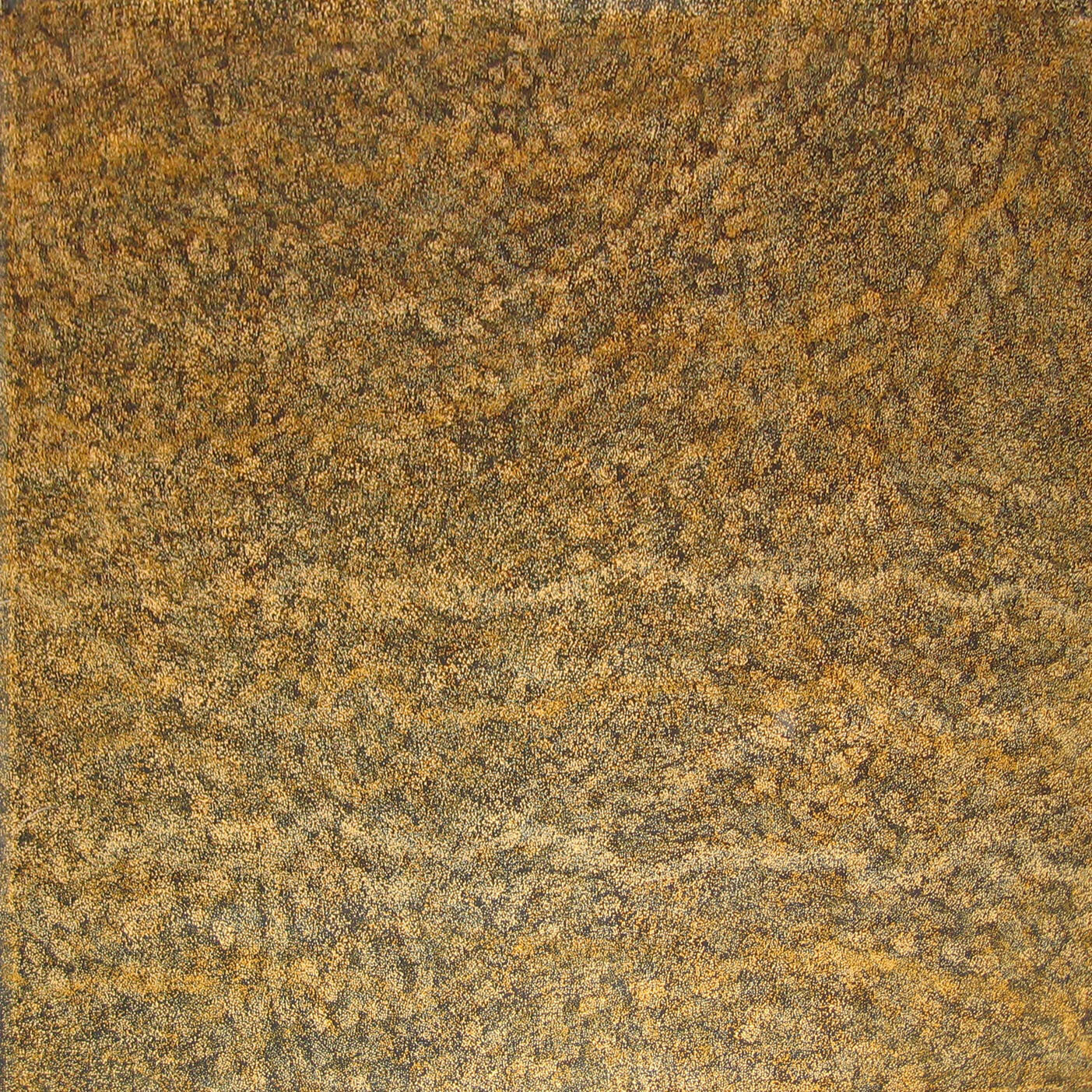Bush Plum in Summer (2002) by Gracie Pwerle (Purle) Morton, 152x152cm Cat 7404GM
Depending how you illuminate this painting, the yellow colour palette changes its hue. The artist has created depth by using various tones of yellow on a black background in this beautifully subtle work.
The theme is that of the Bush Plum ( Arnwekety ) Dreaming, which is associated with Gracie's traditional country of Mosquito Bore some 263 km north of Alice Springs.
The Bush Plum is a prostrate plant, which grows in a great profusion of colour and fruit after the fall of rain but very quickly disintegrates after long hot summer months. It is a small fruit with black seeds that can be eaten raw or cooked to make bush damper and has an extremely high vitamin C content.
Using an aerial perspective Gracie’s delicate dotting and colour variation depicts the surrounding landscape during summer months when seeds from the Bush Plum are split open and the husks are scattered over the ground by the hot summer winds.
Gracie is one of the senior traditional custodians for both the Altyerre (Dreaming) and the vast expanse of related country. In accordance to traditional law the responsibility for the Bush Plum Dreaming has been passed down to Gracie from her father and her aunt, who are responsible for ensuring that she preserves its traditions.
The Bush Plum Dreaming site is one of the major Dreamings of the Utopia region. Throughout this painting there is a profusion of the dry seeds of the native bush plum ( canthium latifolium ) a fruit which proliferates in that area.
The 'bush plum' which is in fact a native currant, grows on a tall, straight, thin broad-leaved, lightish- coloured tree, and is initially green, than gradually turns black as it ripens. These fruit grow in small black clusters.
The intersecting lines represent the 'ritual activities of women who are singing, dancing and painting women's body designs ( awelye ) on their limbs.
These are characteristically applied, in ceremonial contexts, to the breasts, upper back, shoulders and thighs, in parallel horizontal and vertical lines and streaks'.
Source: Dr Christine Nicholls
GALLERY GONDWANA
ABN: 75 009 652 046
All prices displayed in AUD, GST included.
Gallery Gondwana acknowledges the First Peoples of this land and recognises their continuous connection to culture, community and Country.
CONTACT US
+61 417 75 74 75
+61 417 27 44 31
info@gallerygondwana.com.au
PO Box 3770, Alice Springs NT 0871 Australia
Vatu Sanctuary
Saturate yourself and be inspired by the power of Aboriginal art in a living gallery environment.

All Rights Reserved | Gallery Gondwana
